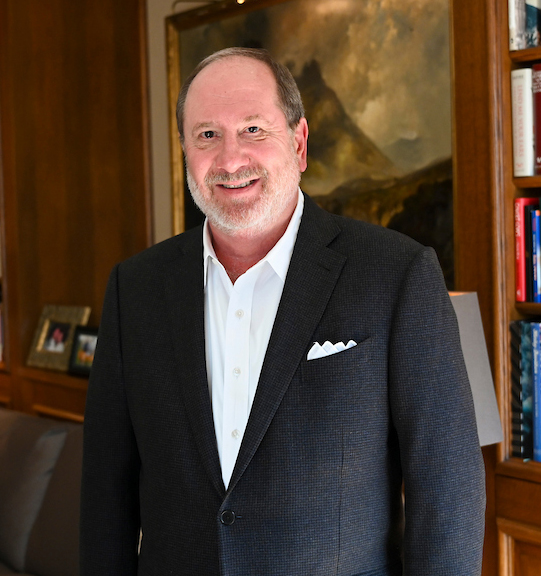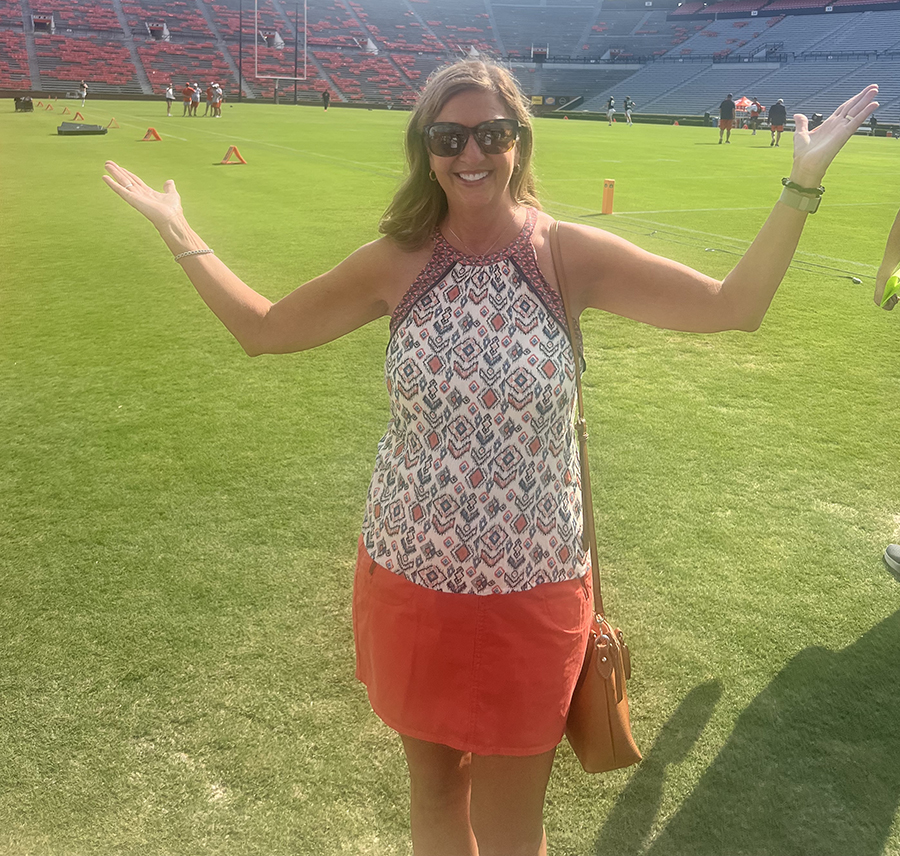
“There are few professions better suited to work virtually, or remotely than public
accounting.”
The Harbert College is dedicated to partnering with companies and alumni to engage
industry and improve business
practice.
Working remotely threw a curve ball at many professions, and the accounting industry
was no exception. Through it all – working at home, sharing work space with spouses/roommates,
and juggling childcare situations, have accountants been as efficient?
Two industry professionals joined Harbert College of Business School of Accountancy Professor Greg Jenkins in a special webinar, “Accounting Practices Shift Virtual,” as part of the college’s “Reshaping Business in 2020” series on Wednesday, September 30, to discuss challenges of working remotely during
COVID-19.
“There are few professions better suited to work virtually, or remotely than public
accounting,” said Ric Kimball, Principal and Advisory Market Leader for KPMG’s Mid-South
Region.
One hundred and forty auditors from local, regional, national and Big 4 firms were
surveyed by Jenkins and School of Accountancy colleagues Tina Loraas and Jonathan
Stanley. “We were trying to capture their experiences and perceptions,” said Jenkins
of the report, "Auditors' Remote Work Experiences During COVID-19."
 |
Greg Jenkins, Professor, School of Accountancy
|
“This was a big, big transition … a big shock to the audit profession. We heard from
some auditors who had almost 40 years of experience and no doubt, some of those people
had already had experience working remotely. We really had quite a range of individuals
that responded to our survey. One issue that we wanted to ask about, just a very basic
question was, ‘Have you worked remotely in the past?’ Overall, about 40 percent of
our respondents had some sort of experience working remotely.”
But has working remotely been more efficient? That depends.
“In every case, firms had individuals who felt like remote work did, in fact, make
them more efficient,” Jenkins said. “They were able to get more done in the same number
of hours, in any given day. On the other hand, we also see individuals who felt that
working remotely did not drive efficiency. When we look at our data, one of the things
that drives auditors’ perceptions of efficiency, is prior experience working remotely.
These individuals appear to have been able to adapt more quickly. They just hit the
ground running and kept going.”
What do professionals need to perform optimally?
“A question we asked is … ‘What do you need to continue working remotely, and do so
in an effective and efficient way?’” said Jenkins. “This will probably not surprise
you, but having a comfortable chair and desk … most of us don’t have the full office
suite at home. An additional monitor was something that we heard quite a bit. Access
to a printer and scanner. Better and faster internet – just being able to communicate
more seamlessly.”
 |
Ric Kimball, Principal and Advisory Market Leader for KPMG's Mid-South Region.
|
Kimball, a 1999 Harbert College alum, has discovered a surprising phenomenon in the
technology age. “We grew up in a setting where we spend most of our time working face-to-face
with clients, training our teams on the job, commuting to meetings, and travel,” he
said.
“A lot of us (in management) were very hesitant, or had a lot of concern, as we moved
to the model, and our younger team members, especially those coming right off of campus
were like, ‘This is fine. It shouldn't be much of an issue at all, we'll pivot.’ As
we continue to evolve, the management resources became much more comfortable in this
environment, and understood the efficiencies that you mentioned that we could drive,
and the ability to transition work. There's almost been a flip a little bit in some
of the job satisfaction metrics.
“If you think about it, initially, that caught me by surprise, but as we evaluated
it, they signed up for a job where they were going to be working with a big team in
a conference room, solving problems, and that team environment. And now a lot of times,
they're working at their kitchen table. You do that for a week or two, and that's
not too bad. You do it for a month or two, it becomes worse. And now that we are in
an evolved period, it becomes even more challenging.”
Megan Lansden, Tax Partner at EY who earned a MAcc from Harbert College in 2006, recognized
the challenges, and also found opportunities – and a light at the end of the tunnel.
 |
Megan Lansden, Tax Partner at EY
|
“I have clients across the country, so I used to travel a fair amount, which has come
to a complete halt since March,” she said. “As we've transitioned to virtual and video
conferencing, I've found that there are some clients I have actually seen -- maybe
not face-to-face -- but at least screen-to-screen. We've seen each other's faces,
sometimes more often in a video chat environment than we did previously, because I
might only get to their actual location a few times a year, and then we would do conference
calls outside of that. That's been an unexpected benefit to me that's been nice.”
Lansden hinted at a return to normalcy, to a degree.
“I would say we're starting to see a little bit of return to face-to-face meetings,
and specific instances where there's a real good business purpose,” she added. “Generally,
it's still not a big meeting. We're not pulling together 20 people in a conference
room to talk about things, but some one or two-on-one type discussions and meetings
are starting to happen again, where we can be very careful.
“We're also starting to look at returning to offices. I think some of our colleagues
in local and regional firms have probably moved more quickly back to office. But at
the Big 4, in certain cities, especially our smaller locations, where our offices
are smaller and you're not trying to get thousands of people up a handful of elevators
every single day, that we're starting to look at reopening some of that.”
The series continues on Wednesday, October 7, at 11 a.m. as Harbert alums Sean Conley
(’16), Assistant VP and Corporate Relationship Manager at BBVA in Jacksonville, Florida,
and Tim Strader (’18), Analyst at JP Morgan, join Finance Lecturer Dr. Damion McIntosh
to discuss “Personal Finance During a Pandemic.”


 Degrees & Programs
Degrees & Programs
 Faculty & Staff
Faculty & Staff
 Career Development
Career Development
 Recruiters & Industry
Recruiters & Industry







